Comments and Issues
2023 zoning and aspirants’ pairing permutations (2)
Published
4 years agoon
By
Publisher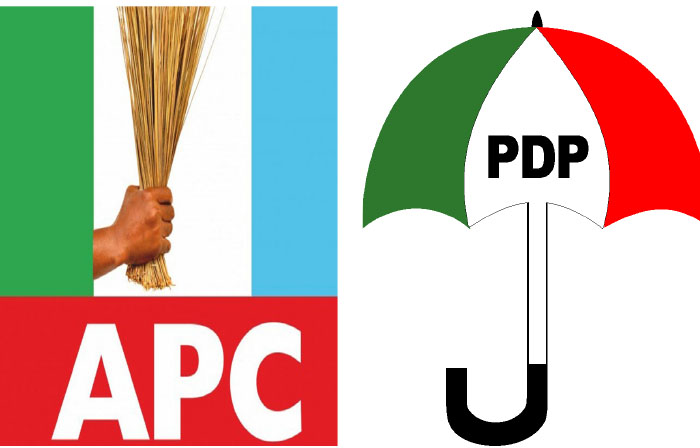
By Ehichioya Ezomon
As noted in part one of this article on Monday, February 7, 2022, the politicians that welcomed the new civilian administration in 1999 agreed to a gentleman’s arrangement to rotate the presidency between the North and South of Nigeria.
But for the distortion of the principle in 2011 by President Goodluck Jonathan, a Southerner, the mechanism would’ve run smoothly, at least on the platform of the Peoples Democratic Party (PDP).
Recall that former Head of State, retired Gen. Muhammadu Buhari, a Northerner, mindful of the “zoning of the presidency to the South” in 1999, ran under the All Peoples Party (APP) against the second term bid of Chief Olusegun Obasanjo of the PDP in 2003.
Also read: Atiku kicks against zoning, endorses indirect primary
And thereafter, Buhari consecutively vied on the platforms of the All Nigeria Peoples Party (ANPP) in 2007, Congress for Progressive Change (CPC) in 2011 and All Progressives Congress (APC) in 2015, before crowning his long-held ambition that runs out in 2023.
Dr Jonathan, as vice president, and later president, had completed the first-term tenure of President Umaru Musa Yar’Adua, a Northerner, who died in the third year of his presidency in 2010.
Subsequently, Jonathan, against the understanding for rotation of the presidency between the North and South, contested in the 2011 polls and won, even as there’s a reported agreement by the North to allow him a single term of four years – between 2011 and 2015 – before the office would revert to the North.
Also read: 2023 zoning and aspirants’ pairing permutations (1)
Nonetheless, Jonathan’s rule in those four years short-changed the North of its eight-year-tenured presidency under the rotation agenda. That’s why in the 2023 election cycle, zoning of the seat has become intensely contentious, and hazier, as to which region – North or South – should produce the next president.
The argument for rotation of the presidency weighs heavily in favour of the South, considering that President Buhari will be completing his eight years of two terms of four years each in 2023.
So, in the lead-up to the polls, the expectation, and urging is that the South will produce the next president on the basis that the political parties, especially the ruling APC and the main opposition PDP, will zone the seat to Southern Nigeria.
However, a section of the political class and the intelligentsia in the North feels otherwise, and strongly canvasses for the North to retain the presidency beyond President Buhari’s tenure in 2023, so as to equal or surpass the number of years that the South has ruled Nigeria since the return of democracy in 1999.
For the record, the South has produced two presidents in former Head of State, Dr Obasanjo and Dr Jonathan, cumulatively governing for 14 years, with Obasanjo ruling from
1999 to 2007, and Jonathan from 2010 to 2015.
Conversely, within the timeframe of 24 years, between 1999 and 2023 (when Buhari will round off his tenure), the North has produced two presidents – the late Yar’Adua and Buhari, whose years of governance would be 11, with Yar’Adua ruling from 2007 to 2010, and Buhari from 2015 till 2023.
And that’s the puzzle of the matter! The North insists on producing the next president, to compensate for its “loss” of four (or five) years from eight years the region would’ve controlled power, but for the death of President Yar’Adua barely three years in office.
But polity watchers argue that retaining power in the North, after Buhari in 2023, would disrupt further the rotation of office of the president between the North and South of Nigeria.
Certainly, were this scenario to succeed, the North would’ve had additional four years, in the first instance, from 2023 to 2027, and the likelihood of another four years between 2027 and 2031, to complete the presidential cycle of eight years.
In other words, the North, since 1999, would’ve aggregately ruled the country for 15 years or 19 years, resulting in one or five years more than the period of 14 years that the South has governed.
This has the potential to set a dangerous precedent of tit-for-tat between the North and South, as each tries to grab power at the centre, and thus deepens the level of polarisation in the system.
Worrying as this picture might look, the North doesn’t seem to care, as its sole interest is in equalling or surpassing the number of years that the South has ruled the country since 1999.
Bauchi State Governor Bala Mohammed restated the North’s stand in late January 2022, as he received a report from the Contact and Consultation Committee he set up for his presidential ambition.
Mohammed said: “We are aware of the agitations of the southern part of the country because the leader of the country today, President Muhammadu Buhari, who is from the North, will finish his tenure in 2023; so power should rotate to the South.
“But I want to say that I am in PDP, I am not in APC. It is the APC that has this burden (of zoning the presidency to the South). In my party, the last president was from the South, and he was my President, Goodluck Ebele Jonathan.
“During this period, my party was at the centre for 16 years (and) 14 of those years were led by the people from the South. So, where is the justice and the justification (for the North to relinquish power)? Therefore, it is the turn of the North (to produce the next president).”
While Governor Mohammed is concerned about zoning under the PDP, some are theorising a situation in which all political parties will field only Northern presidential candidates in the 2023 polls – a semblance of the 1999 zoning – and whoever wins on whatever political platform will govern for only one term of four years.
The reasoning is that the outcome of such an arrangement would almost balance the number of years – 15 and 14, in that order – that the North and South have ruled the country, and then, the rotation of the presidency between the two regions would begin afresh.
The problem with this theory is twofold. First, which of the regions – North or South – will take the first shot at the presidency in 2027? If it’s the North, it would’ve consecutively completed 12 years in the saddle, and accumulatively 15 years overall.
That’s, Yar’Adua’s three years plus Buhari’s eight years and the contemplated four-years post-Buhari presidency, thus surpassing, by one year, the South’s 14 years in power since 1999.
Second, due to “sweetness of power,” there’s a possibility of the North insisting on another four years, from 2027 to 2031 – in an eight-year tenure – to progressively make it 16 years of unbroken presidency by the region, and a total of 19 years in power, and five years more than the South’s rulership of Nigeria since 1999.
What a vicious cycle that would be were the South to emulate the North when power returned to it in whatever year! It’d be a mockery of the rotation principle designed to equitably distribute power, every eight years, between the North and South of Nigeria.
Last Line: Part 3 of this serial will examine zero-zoning or open contest of the presidency based on “competence” and the gambit of a “Muslim-Muslim” joint ticket, as it’s in the Military annulled June 12, 1993, presidential election.
- Mr. Ezomon, Journalist and Media Consultant, writes from Lagos, Nigeria.
Ehichioya Ezomon. With best regards. God bless. 08033078357. Twitter: @EhichioyaEzomon WhatsApp: 08033078357.
You may like
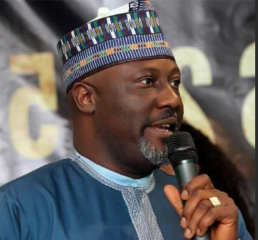

Dino Melaye exits PDP, calls it an APC ‘Parastatal’
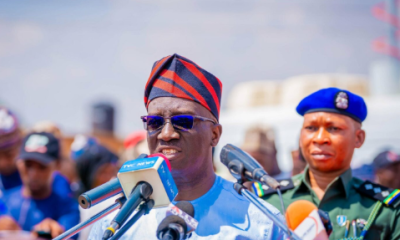

Edo PDP accuses Gov. Okpebholo of taking false credit for Benin-Asaba Expressway Project


Osun lawmaker Taofeek Ajilesoro resigns from PDP amidst “Persistent Internal Conflicts”


Nasarawa PDP chairman debunks 2027 endorsement claims, urges unity
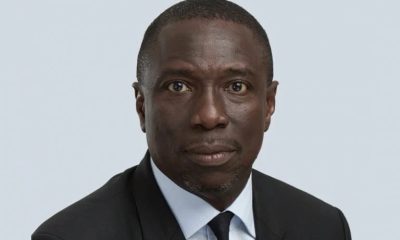

Edo 2024: What happened On Sept 21 was deliberate, Coordinated robbery — Ighodalo
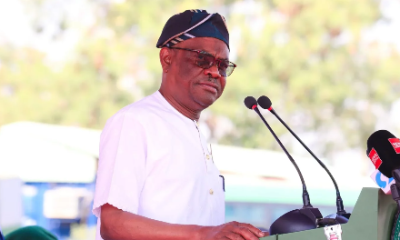

PDP’s presidential zoning must come to the south – Wike
Trending

 Football7 days ago
Football7 days agoNFF dismisses claims of DR Congo’s World Cup qualifying disqualification

 Entertainment5 days ago
Entertainment5 days agoSinger Simi sparks debate after calling for death penalty for rapists

 Football1 week ago
Football1 week agoCAF set for quarter-final draws in Cairo as road to continental finals takes shape

 Business5 days ago
Business5 days agoNaira mixed across markets as official window dips, parallel market strengthens

 Football6 days ago
Football6 days agoGalatasaray thrash Juventus 5–2 to hand Spalletti first champions League defeat

 Football1 week ago
Football1 week agoPardew praises Arteta’s four-competition charge, backs Liverpool for Champions League triumph

 Business5 days ago
Business5 days agoNaira hits N1,337 against Dollar amid positive market sentiment

 Crime7 days ago
Crime7 days agoSouth African Court charges three over murder of Nigerian e-hailing driver in Pretoria

